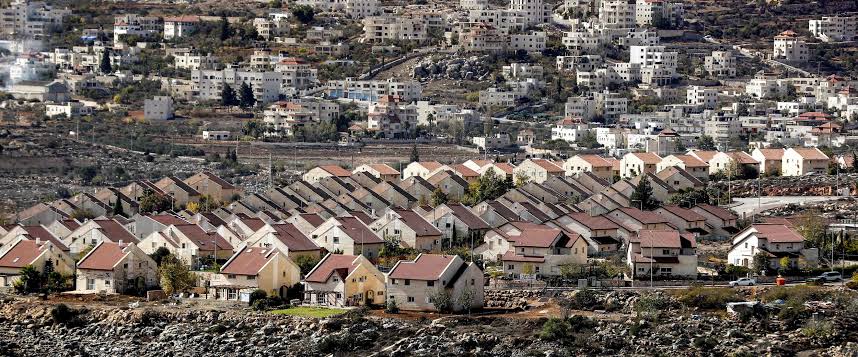Australia/Israel Review
The US, the settlements and international law
Dec 3, 2019 | David Harsanyi

Say what you will about US President Donald Trump’s mercurial foreign policy, his support for Israel has been resolute in ways that no other president can match.
It was Trump who finally followed the law and recognised Jerusalem as the capital of the Jewish state. Every president since 1995 – the year the Jerusalem Embassy Act, which funds the relocation of the American embassy from Tel Aviv to Jerusalem and recognises the city as the “undivided” capital of Israel, was passed overwhelmingly in both the House and Senate – had promised to move the embassy. None did.
It is probably Trump’s uniquely defiant disposition toward group-thinking State Department types that made the move possible. But Jerusalem proper was never going to be the Palestinian capital, and it was about time everyone involved dealt with reality.
It was also the Trump Administration that finally recognised Israel’s 1981 annexation of the Golan Heights, a strategically vital strip of land from which Syria and her proxies have launched numerous wars, bombings, and terror operations against Israeli civilians over the past 70 years. Israel was never going to hand back this land to the Assad regime, or negotiate with it, and it was about time everyone accepted this reality.
And on Nov. 18, US Secretary of State Mike Pompeo announced that the United States would no longer take the position that Israeli civilian “settlements” in the West Bank are “inconsistent with international law.” (Or, as US Ambassador to Germany Richard Grenell aptly put it, the United States would “no longer meddle in local Israeli zoning and building-permits issues.”) Many of those “settlements” – cities, really, some of them in existence for decades – are part of a de facto border, and they are never going to be bulldozed. That’s also reality.
It has always been a mistake for the United States to treat disputed territories in the West Bank as occupied. For one thing, it was impossible for Israel to “occupy” Palestinian territories because no such state has ever existed. Israel spilled much blood taking the West Bank in self-defence from Jordan after that nation joined Egypt and Syria in the attempted destruction of Israel in 1967. Even then, Jordan had no legal claim to the territory. Israel offered 98% of the West Bank back right after the 1967 war, and on numerous occasions afterwards. It was always refused.
At the very least, US policy treating Jews who returned to their ancient homeland as occupiers should have been voided the day Israel signed a peace treaty with Jordan in 1994. Because the much-talked-about United Nations Security Council Resolution 242 does nothing to undermine the Jewish claim, no matter how often it’s misrepresented by Israel’s antagonists. In it, the UN established Israel’s legal right to negotiate a peace with defensible borders with existing states. Resolution 242 doesn’t mention the word “Palestinian” anywhere. Nowhere does the resolution call on Israel to withdraw to the pre-Six-Day War lines. Nowhere does it stipulate that Judea and Samaria should be Judenfrei.
As always, though, any decision that helps Israel is framed by many in the media as an effort to weaken “Palestinian efforts to achieve statehood.” This is myth. Fatah might have deluded its own people and the world for decades, but there’s no conceivable peace deal that includes a truly divided Jerusalem or a Right of Return or any indefensible border with a Palestinian state. None of Trump’s moves undermine peace. They simply clarify the contours of a realistic deal.
Most coverage also framed Pompeo’s announcement as a Trump-administration assist to the embattled Israeli PM Binyamin Netanyahu. Perhaps it is. If so, it’s good work by Bibi. It’s important to remember that both of Israel’s major parties and a wide majority of its citizens have welcomed the Trump Administration’s actions. Ninety-six out of 120 Knesset members were supportive of Pompeo’s announcement.
Of course, the Trump Administration’s new position doesn’t mean that Israeli tanks will be rolling into the West Bank and annexing Hebron, as hysterical commentators seem to believe. Israel has never eyed appropriation of Arab population centres. It’s done everything it can to allow responsible Arab self-governance. (Hey, when was the last election in the West Bank?) What it does mean, as Pompeo clearly states, is that final-status negotiations between Israel and the Palestinians will be predicated no longer on a fantasy of “occupation” but rather on the reality of disputed land.
David Harsanyi is a senior writer for National Review and the author of First Freedom: A Ride through America’s Enduring History with the Gun. © National Review (www.nationalreview.com), reprinted by permission, all rights reserved.
Tags: Israel, Palestinians, United States






